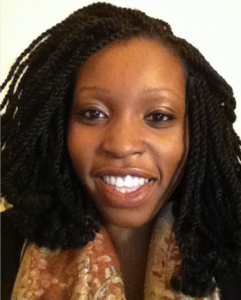‘Race Women Internationalists’: A New Book on Global Freedom Struggles
This post is part of our blog series that announces the publication of selected new books in African American History and African Diaspora Studies. Race Women Internationalists: Activist-Intellectuals and Global Freedom Struggles was recently published by the University of California Press.
***
 The author of Race Women Internationalists is Imaobong Umoren, Assistant Professor of International History of Gender at the London School of Economics and Political Science. She obtained a BA in History and MA in World History and Cultures at King’s College London before moving to the University of Oxford where she gained her DPhil and spent a year serving as a Fulbright scholar at Harvard University. She subsequently took up a Career Development Fellowship jointly held with Pembroke College and the Oxford Research Centre in the Humanities research programme Women in the Humanities. Her research focuses on the history of race, gender, and migration in the Caribbean and wider African diaspora in the nineteenth and twentieth centuries. Her research has been supported by the Arts and Humanities Research Council, the Library of Congress, and the British Academy. She is the author of Race Women Internationalists: Activist-Intellectuals and Global Freedom Struggles (University of California Press, 2018).
The author of Race Women Internationalists is Imaobong Umoren, Assistant Professor of International History of Gender at the London School of Economics and Political Science. She obtained a BA in History and MA in World History and Cultures at King’s College London before moving to the University of Oxford where she gained her DPhil and spent a year serving as a Fulbright scholar at Harvard University. She subsequently took up a Career Development Fellowship jointly held with Pembroke College and the Oxford Research Centre in the Humanities research programme Women in the Humanities. Her research focuses on the history of race, gender, and migration in the Caribbean and wider African diaspora in the nineteenth and twentieth centuries. Her research has been supported by the Arts and Humanities Research Council, the Library of Congress, and the British Academy. She is the author of Race Women Internationalists: Activist-Intellectuals and Global Freedom Struggles (University of California Press, 2018).

Race Women Internationalists explores how a group of Caribbean and African American women in the early and mid-twentieth century traveled the world to fight colonialism, fascism, sexism, and racism. Based on newspaper articles, speeches, and creative fiction and adopting a comparative perspective, the book brings together the entangled lives of three notable but overlooked women: American Eslanda Robeson, Martinican Paulette Nardal, and Jamaican Una Marson. It explores how, between the 1920s and the 1960s, the trio participated in global freedom struggles by traveling; building networks in feminist, student, black-led, anticolonial, and antifascist organizations; and forging alliances with key leaders. This made them race women internationalists—figures who engaged with a variety of interconnected internationalisms to challenge various forms of inequality facing people of African descent across the diaspora and the continent.
Melissa Shaw: What type of impact do you hope your work has on the existing literature on this subject? Where do you think the field is headed and why?
Imaobong Umoren: One impact that I hope my work has is that it leads other scholars to explore the political diversity of Black internationalism. For instance, further scholarship could explore conservative figures who practiced Black or other types of internationalisms. Another impact, not directly related to my book, is that more work examines internationalism in different eras such as the nineteenth century and the late twentieth century.
At present, I think the field is in a very exciting place. In terms of the future, I think there is much more work needed to explore Black internationalism in different parts of the African continent and Latin America. This will help scholars and students to understand more fully the nuances of internationalisms and the impact that religion, language, and slavery for instance, had on its varied constructions. With so much original scholarship being pursued in these areas I think the field will continue to move in so many different exciting directions.
Copyright © AAIHS. May not be reprinted without permission.